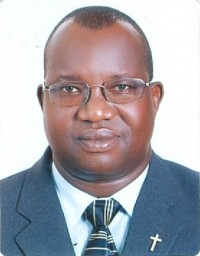How not to fight AIDS — beat up gays
Colin Stewart is a 45-year journalism veteran. He is the…
COMMENTARY

Government harassment and anti-gay mobs in several African countries are hampering efforts of gay rights groups to combat the spread of AIDS.
The most recent incident came on March 28, when police in Cameroon broke up a planned three-day meeting on AIDS and the human rights of sexual minorities.
Cameroon official Martin Locko Motassi said a meeting about people with HIV/AIDS would be acceptable, but not a session on LGBT rights. He ordered police to disperse the gathering and take down banners about the rights of sexual minorities.
Similarly, in Kenya on Feb. 23, a mob broke up an HIV-prevention training meeting in Mombasa, Gay Star News and Africa Review reported.
The meeting, organized by the Kenya AIDS NGO Consortium, was part of an ongoing initiative to reduce HIV transmission in men who have sex with men.
Five leaders of the meeting were reportedly seized by a 100-person mob:
They were held captive in the building for three hours as residents bayed for their blood.
The five were saved by Likoni police boss Abagarro Guyo and district officer Moses Ouma who ordered the seminar closed.
Similar disruptions have also occurred recently in Uganda and Ghana. In those incidents, gatherings of gays and lesbians were targeted, rather than specifically AIDS prevention meetings. But the harassment has a chilling effect on any gatherings of sexual minorities, including anti-AIDS programs.
“Anti-gay oppression undermines prevention efforts,” researcher Evelyn González-Figueroa reported in GMHC Treatment Issues magazine. Laws against homosexual behavior “lead to widespread intimidation and harassment of gay men and [men who have sex with men] by law enforcement and health care providers,” she said.
In Uganda on Feb. 14, a leadership workshop for gay activists in Entebbe was raided by police and a Ugandan cabinet minister, the BBC and Amnesty International reported.

Minister for Ethics and Integrity Simon Lokodo said the Entebbe gathering was illegal. He ordered the arrest of workshop participant and LGBT rights activist Kasha Jacqueline Nabagasera, who reportedly then fled.
In Ghana on March 11, a mob of anti-homosexual youths broke up a reported celebration of a lesbian marriage. According to one account, “every suspected lesbian [was] stripped naked and chased out of town with sticks and whips.”
Ghana’s Human Rights Advocacy Centre said nine gay men and one lesbian woman sought refuge, saying their houses and families were “under constant attacks from the vigilante group who claim to be acting with the consent of the police.”
According to the International Gay and Lesbian Human Rights Commission, “Same-sex practicing men and women are at increased risk of contracting HIV not solely because of bio-sexual vulnerabilities, but as a result of an interlocking set of human rights violations that prevent access to effective HIV prevention, voluntary counseling and testing, treatment, and care.”
Estimates of HIV infection rates are much higher for men who have sex with men, or MSMs, than the general population, but the estimates vary widely from study to study.
A report published in the Lancet medical journal in 2009 cited a 6.1 percent HIV infection rate for Kenyan MSMs and 1.4 percent for those in Ghana.
AmfAR AIDS Research estimated 43 percent for MSMs in Kenya and 25 percent in Ghana.
The Crane Survey estimated the HIV infection rates for MSMs in Uganda at 13.7 percent.
C0nsultancy Africa estimated about 25 percent for MSMs in both Ghana and Kenya. The consultants’ report added:
Community leaders, the police, health care personnel and journalists [need to be] more aware of the basic human rights and health care needs of MSM.
In addition, the criminalisation of homosexual practices in many African countries should be addressed, as it plays a critical role in the widespread stigmatisation and discrimination that many MSM suffer. This could be done by putting more pressure on these Governments to decriminalise homosexual practices.
The interfaith Compass to Compassion Coalition has launched an effort called the Spirit of 76 to bring representatives from Uganda, Kenya, Cameroon, Ghana and 72 other countries with anti-homosexuality laws to this summer’s World AIDS Conference in Washington, D.C., where they will describe the negative impact of those laws on AIDS prevention efforts.
Related articles
- Ugandan Government raids LGBT-rights workshop and threatens MEA Laureate Kasha (thoolen.wordpress.com)
- Uganda minister raids gay meeting (bbc.co.uk)
- Cameroon police raid anti-AIDS rights meeting (76crimes.com)
- Uganda: Don’t exclude gay men from AIDS programs (76crimes.com)
- Anti-gay mob wades into Ghana gay-rights dispute (76crimes.com)



Reblogged this on Goaty's News.